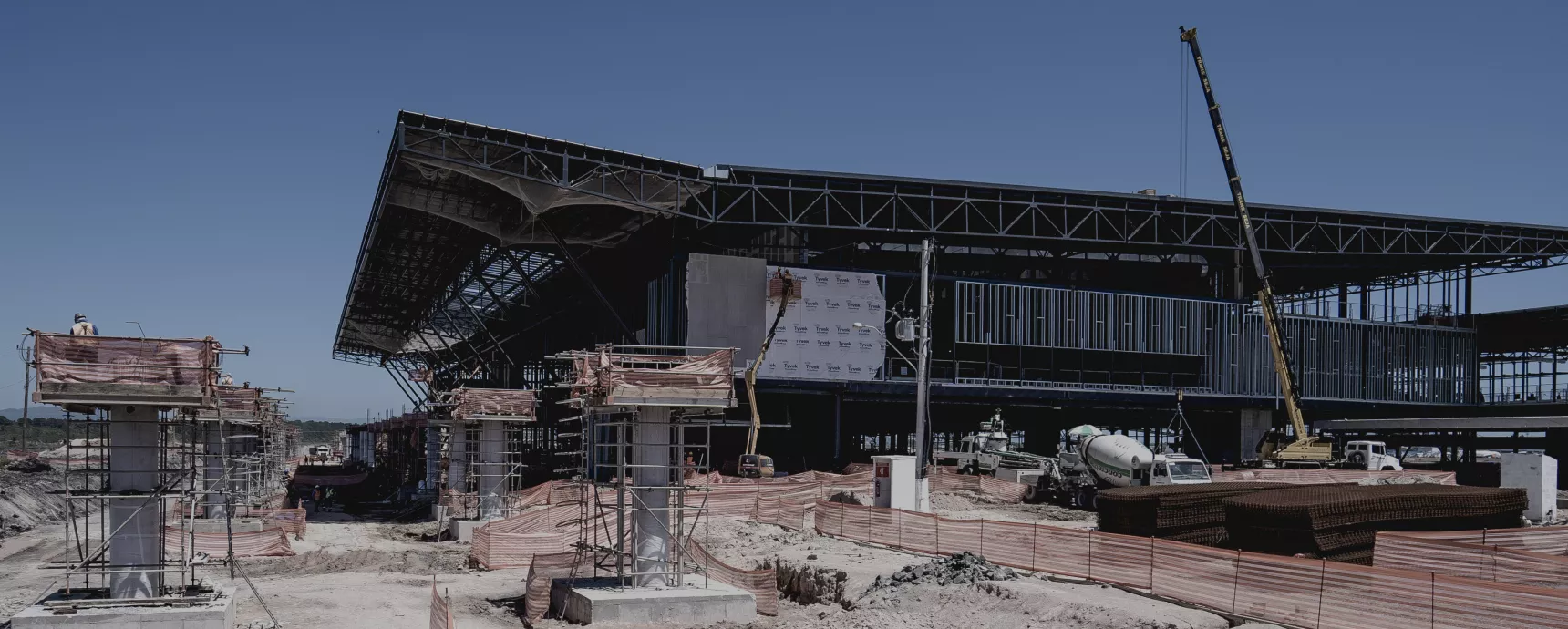This week I had the opportunity to participate in a panel at the Rio Construção Summit, which made me reflect on the relationship between airports and construction companies. And it is something special, different from other partners or suppliers. I had the pleasure of being responsible for several terminal construction projects, in Switzerland, Curaçao, Brazil, Chile, working in different roles, as project manager, CEO and now from a board perspective.
I think I developed a kind of “love and hate” relationship during the construction phases of the airport concessions. It's an incredible opportunity, where magic can happen. For those who know Florianópolis airport – can you believe that Boulevard 14/32, the large commercial and events square, was only incorporated into the project later? We started construction eight months before the airport opened (and we had to rush to finish on time). I believe this part of the airport was innovative and makes a huge difference to the airport experience today. I'm glad we added Boulevard 14/32.
But if a concessionaire does not have costs under control during the construction phase, it can lose a lot of money, which will be difficult to recover during the concession period. And to be honest, the problem isn’t mainly with the builder – the additional costs often come from the owner ordering “a little more of this and that”. To be self-critical: special attention needs to be paid to CEOs at this stage, they tend to have great ideas, but expensive and last minute.
Excessive project costs are common, but I'm sure they can be avoided. There are numerous tools that manage them: EPC or GMP contracts, performance insurance, “open books”. Of course, we need these tools to run perfectly, but they won't necessarily protect those involved from cost variance discussions at the end of the project.
So, what tips can I give you to stay on budget? A simple technical question: soil samples. When you think you've done enough of them, do more. It is important to have clear soil characteristics to know how to build. Without good documentation, you may later find yourself in an argument about how good your land really was. I went through it.
And the other tip, even more basic: constant communication (especially that which happens outside of video calls). Of course, your construction partner needs to meet all governance requirements, but in addition, they must share your values and understanding of a good business partnership. Staying within budget should be a common goal that you both agree on – and then talk about it constantly during the project, at a technical level e management.
I'm happy to say that I had the pleasure of working with many good construction companies, for example at Florianópolis airport and now Macaé. In fact, it's almost romantic: when you find the right partner, you'll know.


